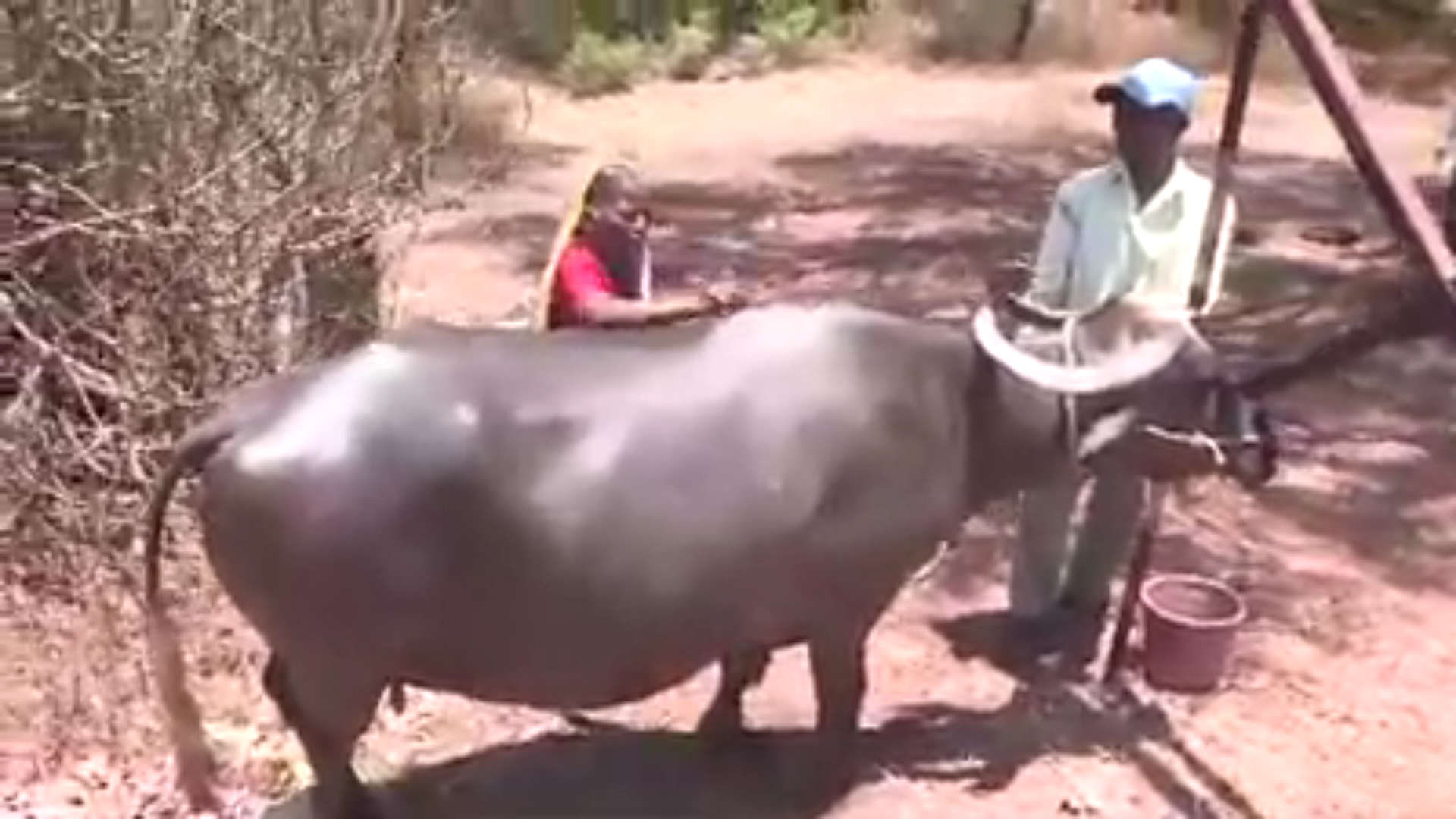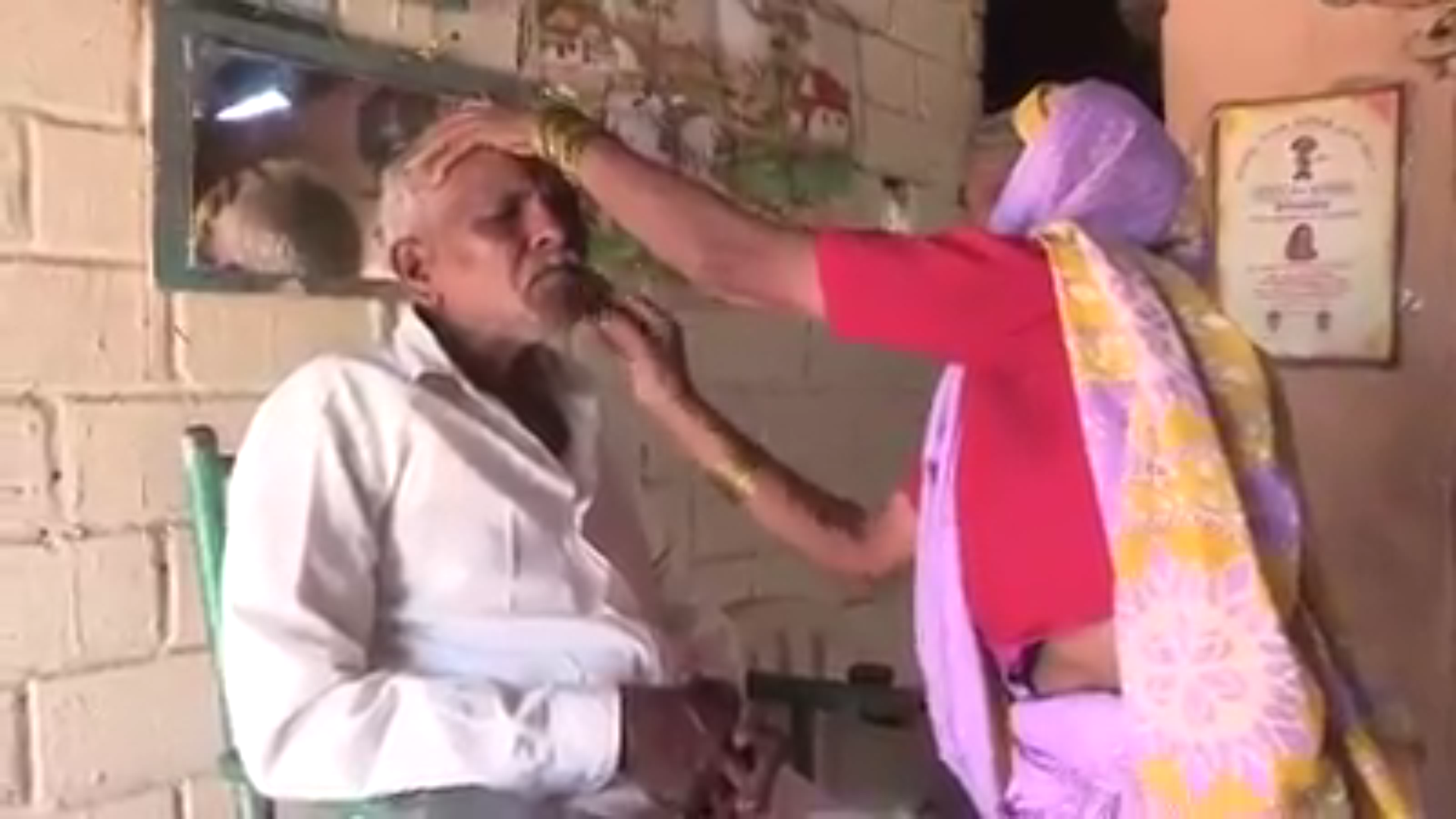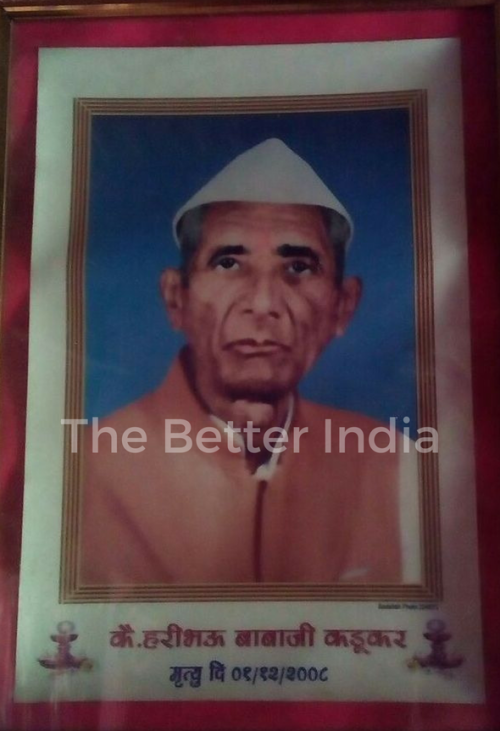The Incredible Story of India’s First Female Barber: Shantabai
She saved her family from starvation and death by embracing her late husband’s profession. In the process she broke gender stereotypes to become India’s first female barber.

She saved her family from starvation and death by embracing her late husband’s profession. In the process she broke gender stereotypes to become India’s first female barber.
From India’s first woman bartender, Shatbhi Basu, to India’s first female wine sommelier, Sovna Puri, the country’s women are making a conscious effort to pursue their passions and careers, breaking gender stereotypes and crashing the glass ceiling.
But, 40 years ago, there was a traditional woman who did not even know what gender stereotyping was. All she wanted to do was lead a quiet life with her family in a village. But when life threw her a challenge, she gathered the courage to take it on, rising to the occasion to enter a man’s world so she could feed her hungry daughters. This is the story of Shantabai Shripati Yadav, India’s first female barber.
This 70-year-old from Hasursasgiri village in Kolhapur district of Maharashtra is indeed an inspiration to all.

Shantabai was married when she was just 12 years old. Her father was a barber and so was her husband Shripati.
Shripati farmed the three acres of land that he and his four brothers owned in Ardal Village of Kolhapur district. He also worked as a barber to add to his income. But soon, the brothers had a falling out and split the three acres of land between themselves. As Shripati had less than an acre of land to do farming on now, he started travelling to other villages to find more customers he could give shaves and hair cuts to.
However, it was still hard to make ends meet and Shripati had to take loans from moneylenders.
Haribhau Kadukar, the sabhapati of Hasursasgiri village, saw Shripati’s dilemma and offered to help him relocate to Hasursasgiri. There were no barbers in that village so there were good chances of Shripati earning well.
And so, Shantabai and Shripati came to Hasursasgiri to start a new life. In the next 10 years, Shantabai gave birth to six daughters, two of whom died as infants. However, Shripati was earning well from his barber shop and could take care of his family. But in 1984, when Shantabai’s eldest daughter was 8 years old and youngest one was not even a year old, Shripati died of a massive heart attack.
For three months, Shantabai worked as a farm labourer for eight hours a day. She would receive 50 paisa at the end of the day for her back breaking efforts, not enough money to feed her four daughters.
The government paid her Rs.15,000 for the piece of land that her husband owned. Shantabai used the money to pay off Shripati’s debts. But she still struggled to feed her children. For three months, she toiled in the farms. On some days she managed to get two meals for her family but on other days there was nothing. Finally, she lost heart and decided she was going to commit suicide along with her four daughters.
But this time again, Haribhau Kadukar became her saviour. When he came to know about Shantabai’s ordeal, he suggested she take up her husband’s profession. After Shripati’s death there were no barbers in the village and Shantabai could earn well like her husband had.
Shantabai was dumbfounded at the idea. After all, who had ever heard of a female barber? But did she have a choice?
“I had only two choices, either to kill my daughters and myself and give up on life altogether or to hold the ustra that my husband left behind and struggle. I decided to choose the later,” said Shantabai.

Haribhau became Shantabai’s first customer. Initially, the villagers found what she was doing ludicrous. They mocked her and called her names. But nothing was going to destroy Shantabai’s spirit now that she had decided to take on a barber’s role. She would leave her kids with her neighbours, the Gadiwadars, and walk 4-5 kms everyday to go to nearby villages in search of more customers.
Soon, the residents of Kadal, Hidadugi and Narewadi villages, where there were no barbers, became her customers.
The news spread and Shantabai’s story was covered by local and regional newspapers like Tarun Bharat.
She also received awards from various organisations like the Samaj Ratna Puraskar for being an inspiration to society.

Way back in 1984, Shantabai used to charge Rs. 1 for giving a haircut and shave.
Soon, she started shaving cattle too, for which she would charge Rs. 5.

In 1985, she got money from the government to build a house under the Indira Gandhi Awas Yojna.
Shantabai married off all her daughters without taking financial help from anyone. She is a grandmother of 10 today.
Now 70, Shantabai cannot walk to nearby villages anymore. She depends on the few customers who come to her from her own village.

“There is a salon in the village. All the youngsters go there. I get only a few old customers. I charge Rs. 50 for a shave and haircut now and Rs. 100 for shaving the cattle. So I make around Rs.300 to Rs.400 per month and get Rs.600 from the government. That’s actually not enough but I have fought before to rise out of difficult circumstances and can do so again,” she says.
“This profession has given life to me and my kids. Until I can see with my eyes and hold the ustra with my hands, I will carry on with this job,” says Shantabai, who is determined to work until the day she dies.
Shantabai gives the credit for her courage and determination to Haribhau Kadukar, who encouraged her during her toughest days.

Haribhau passed away in 2008 at the age of 99. His great grandson, Baban Patil, still visits Shantabai regularly to check on her well being.
You can call Shantabai at 7588868935 or mail Baban Patil at [email protected] if you wish to provide financial help.
Like this story? Have something to share? Email: [email protected], or join us on Facebook and Twitter (@thebetterindia). To get positive news on WhatsApp, just send ‘Start’ to 090 2900 3600 via WhatsApp.

Similar Story

From Kamathipura to Int’l Colleges: 2 Friends Changed Everything For Daughters of Sex Workers
Kranti — an NGO started by Robin Chaurasiya and Bani — provides shelter, education and opportunities for daughters of sex workers and survivors of human trafficking between the ages of 12 and 21.
Read more >
If you found our stories insightful, informative, or even just enjoyable, we invite you to consider making a voluntary payment to support the work we do at The Better India. Your contribution helps us continue producing quality content that educates, inspires, and drives positive change.
Choose one of the payment options below for your contribution-
By paying for the stories you value, you directly contribute to sustaining our efforts focused on making a difference in the world. Together, let's ensure that impactful stories continue to be told and shared, enriching lives and communities alike.
Thank you for your support. Here are some frequently asked questions you might find helpful to know why you are contributing?


This story made me
-
97
-
121
-
89
-
167












